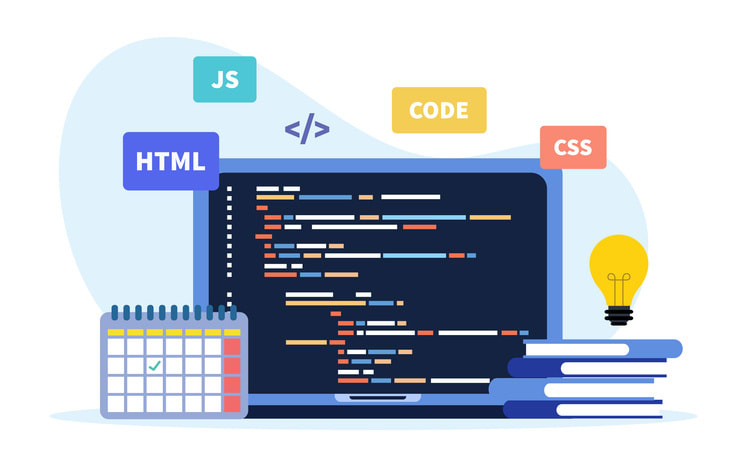Choosing the best drag-and-drop website builder can feel overwhelming, especially with so many options available. In this article, we’ve evaluated the leading platforms to help you decide which website creator aligns with your needs. From top free web builders to premium tools, you’ll discover the strengths and weaknesses of each, their standout features, and where they might fall short. We’ve done the legwork, so your journey in learning how to create a website starts on solid ground, without the hefty price tag.
Key takeaways
- Free website builders offer simple drag-and-drop functionality and various templates, enabling users to create professional websites without coding skills, but often come with limitations like ads, and temporary domain names, and may encourage paid upgrades.
- Specialized website builders cater to different user needs, with platforms like Dorik for experienced creators, HubSpot CMS for growing businesses, WordPress.com for bloggers, and Weebly for e-commerce beginners highlighting tailored features.
- While creating a free website is fast and cost-effective, considerations for future growth include the potential need for paid plans for domain names, hosting, advanced e-commerce tools, and marketing integrations to optimize performance and user experience.
Navigating the world of free website builders

For bootstrappers, solopreneurs, charities, and independent-minded creatives, every cent is vital. Top free web builders are the gateway to quick, cost-effective, and efficient website creation, even for those with low technical skills. The best website builder platforms let you design and launch a professional site without learning or editing code manually. They simplify the process by providing tools like:
-
Hosting
-
Domain names
-
Web page editors
-
Business and category themes
-
Templates
Imagine creating an online presence that looks professionally crafted without needing to master coding.
What makes these platforms stand out is their drag-and-drop website builder functionality and sample content that streamline the process. Beginners can hit the ground running and swiftly establish a polished online presence using these intuitive website creator tools. While they provide essential features for anyone learning how to create a website, free versions often encourage users to upgrade to paid plans for additional functionality. This isn’t necessarily a drawback but rather a stepping stone to scale your site as your needs grow.
Still, as with all things, there are trade-offs. With free website builders, limitations may include:
-
Limited customization options
-
Persistent free-version display ads
-
Temporary or generic domain names
-
Higher transaction fees for premium features
Despite these drawbacks, their convenience, accessibility, and affordability make free web builders a strong choice for personal projects, passion sites, and short-term websites.
Crafting an online presence with no cost: the top free website builders

Free website builders cater to a wide range of users, each with unique needs and preferences. Whether you’re a blogger, a small business owner, or an experienced creator, there’s a builder tailored just for you. One example is Dorik, a free website builder that offers AI image generation capabilities and can be used to create full websites, single landing pages, blogs, or even set up paid memberships. Dorik is specifically designed for experienced creators who require versatility in their website design and functionality.
But don’t fret if you’re just starting out or more inclined towards blogging or e-commerce. There are other platforms that cater to these specific needs, such as HubSpot CMS, WordPress.com, and Weebly. Each platform offers unique features that make them stand out in their respective niches. So, let’s take a closer look at what they bring to the table.
Empower your business with HubSpot CMS
HubSpot CMS is designed with growing businesses in mind, offering specialized tools to support expansion. It features a drag-and-drop editor for easy website creation, making the platform suitable for business owners without technical expertise. But what sets HubSpot CMS apart is its array of built-in tools for marketing and sales, such as a step-by-step plan, an AI builder, and SEO tools that enhance online presence.
These integrated features and ease of use make HubSpot CMS an empowering solution for growing businesses to scale their operations and enhance their online marketing efforts.
WordPress.com: the go-to for bloggers and beginners
When it comes to blogging and simplicity, WordPress.com takes the cake. Thanks to its user-friendly interface, this platform is especially appealing to beginners and bloggers. It offers an easy-to-use online editor that assists newcomers in creating content effortlessly. With various free themes, WordPress.com lets users learn the basics of WordPress design and aesthetics.
As all blogs are a form of website, WordPress.com’s structured support for blogging stands out for those interested in sharing information or writing articles online.
Weebly: the ecommerce starter pack
For those looking to dip their toes into the world of ecommerce, Weebly stands out as a strong contender. With its integrated ecommerce capabilities, Weebly simplifies the creation of an online store, making it an ideal platform for ecommerce beginners.
The platform offers a nifty product listing tool that allows for immediate setup of an inventory for sale, making the process quick and user-friendly. Furthermore, when setting up an ecommerce site on Weebly, the platform helps users by automatically sorting the themes to prioritize storefront options, guiding them towards e-commerce-optimized designs.
Kumospace: bringing collaboration to the table
For remote teams and businesses, websites alone won’t help them grow. You need collaboration, understanding, and inspiration to get things done. Kumospace gives teams the feature of a remote office that looks just like a physical one, with plants, gadgets, meeting rooms, coffee machines, and other goodies.
Using Kumospace, you can chat by messenger, video and share documents, to keep the business moving forward as the inevitable quirks and problems arise. From marketing to building team spirit, Kumospace helps teams grow, keeps workers motivated and less likely to go elsewhere.
Seamless design meets functionality: features that matter in a free website builder

In selecting the best website builder for your needs, it’s important to weigh both design and functionality. Key features to look for in a reliable website creator include:
-
Design customization and flexibility
-
Instant website setups with user-friendly interfaces
-
Drag-and-drop editor options
-
A range of templates to fit various brands
The top free web builders provide a visually intuitive experience with WYSIWYG editors, allowing users to see changes in real time without coding knowledge. They also offer pre-populated templates filled with images, text, and other common elements, making it easy for beginners to learn how to create a website quickly and efficiently.
Beyond design, many free website builders now include built-in SEO tools to help optimize meta titles, descriptions, and alt tags, essential elements for improving a site’s visibility in search results.
Finally, themes and templates offered by these website creator platforms should:
-
Cater to diverse industry needs
-
Provide a variety of backgrounds, layouts, fonts, and color options
-
Permit element-level changes, even with some restrictions
A library of captivating themes
A compelling business website begins with a captivating theme. Many website builders include a diverse selection of website templates suitable for various business types. For instance:
- Google Sites targets hobbyists and beginners with mobile-friendly templates
- Jimdo caters to creatives with modern templates for portfolio presentation
- Weebly’s free WYSIWYG editor comes with impressive templates tailored to different needs, and website builders often include premium templates in their free plans.
The availability of captivating themes in free website builders is crucial for creating websites that resonate with personal styles and meet specific industry needs.
Drag and drop for easy customization
The drag-and-drop editor is one of the distinguishing features of free website builders. Platforms like Wix and Weebly offer easy-to-use drag-and-drop editors, which are highly intuitive and enable the creation of websites without the need for coding knowledge. These drag-and-drop website builders not only simplify the design process but also enable users to seamlessly create online stores directly from their browsers.
Platforms like GetResponse offer highly customizable templates and an AI-powered builder, ensuring an intuitive and flexible web design experience. Moreover, the Artificial Design Intelligence mode, available in Wix’s free plan, facilitates website customization, making it quick to create a professional online presence.
Essential SEO tools for visibility
SEO tools, integral to website builders, facilitate the optimization of on-page elements and enhance search engine performance. Free website builders often include SEO tools to enhance a site’s discoverability. HubSpot CMS, for example, comes with robust tools, while Wix provides a variety of integrations and detailed settings.
Platforms like GetResponse allow for basic meta and alt tag optimization, simplifying on-page SEO. These tools also provide technical SEO support, like free SSL certificates, and facilitate schema markup and XML sitemaps.
By default, Wix incorporates SEO best practices such as:
- server-side rendering
- customizable meta tags
- structured data markup
- dynamic XML sitemaps
This comprehensive approach helps ensure that websites built on Wix are optimized for search engine visibility and performance.
From Idea to Online Reality: Building Your Site Step by Step

Having gained a comprehensive understanding of free website builders and their features, you are ready to dive into the exciting world of website creation. The process of creating a website starts with signing up and choosing the type of website you want to build, which sets the stage for your specific needs. Then, you can customize your chosen template through user-friendly drag-and-drop features, adding media, text, and various design elements without coding.
After your site goes live, you can:
- Edit it as often as necessary, providing flexibility in updating static pages and adding new dynamic content
- Add any necessary business features
- Publish your site to make it available online
Afterward, the focus will shift toward driving traffic to your new site.
Selecting the perfect template
Choosing the right template for your website is akin to selecting the perfect outfit for an important event. It should reflect your style, resonate with your brand image, and cater to your needs. A template website is comparable to ready-to-wear clothing, offering a quick, cost-effective, and generally sufficient option. On the other hand, a custom website is like a bespoke suit, designed uniquely to suit a brand’s individual style and identity.
Whether you’re a small business operating on a tight budget or a large enterprise needing a distinct brand identity, there’s a template out there for you.
Customizing your web pages
Once you’ve selected the perfect template, the next step is to customize your web pages. User-friendly drag-and-drop features available in most free website builders allow you to add:
- media
- text
- newsletter sign-ups
- various design elements
without needing to code. Customization might seem daunting, especially if you’re new to website building. But it can be an enjoyable and creative process with the right tools.
One thing to keep in mind is that handling SEO settings in some website builders like Webflow isn’t always straightforward and can involve multiple steps to find and add elements such as:
- meta descriptions
- title tags
- header tags
- alt tags for images
Launching your site online
Now that your website is customized and ready, it’s time to launch it online. But before you hit that ‘Publish’ button, there are a few things to check. Ensure all content is meticulously proofread for errors and that all design elements are finalized.
To make your site go live, follow these steps:
- Configure your site’s settings
- Select a domain
- Optimize SEO to make sure you are ready for your audience
- Once everything is set, use the ‘Publish’ button typically available on the website builder’s platform
Congratulations, your own website is now live and ready to make a mark in the digital world!
Enhancing your online store with robust ecommerce tools

If you aim to conduct business online, especially online sales, it’s vital to choose a free website builder bolstered with strong ecommerce capabilities. Free website builders like Weebly, Square Online, Jimdo, GoDaddy, and Wix offer tailored ecommerce functionalities to set up and manage online stores effectively. However, using a free website builder for ecommerce may subject the user to high transaction fees and transaction limitations, with the possibility of upgrading to a paid version for advanced functions.
But worry not, free website builders can be enhanced by integrating with third-party tools like Visor and Baserow which offer free product management solutions that support ecommerce capabilities.
Product management and selling online
To effectively manage your online store, integrated ecommerce functions in free website builder plans, such as those offered by Weebly and Jimdo, are invaluable. Weebly’s free plan supports e-commerce functionalities such as listing an unlimited number of items, paired with inventory management features, and is complemented by a simple automated builder for creating the online store.
Jimdo’s free website builder plan offers modern design templates geared towards ecommerce, with the significant advantage of not charging fees on sales made through the platform. Platforms like Webnode simplify the product management and sales process with a user-friendly interface that includes AI assistance and more than 150 templates, facilitating a straightforward path to setting up an online store.
Payment gateways and security
When choosing a free web hosting provider for your online store, it’s essential to consider security features and payment gateways. Free hosting often limits storage and bandwidth, which can affect website functionality. Moreover, websites on free hosting services typically display provider-run ads, impacting user experience and brand image. Free hosting can lead to slower load times and more downtime due to less reliability than paid services.
Finally, the security measures with free hosting are often less rigorous, posing increased risks for data breaches and malware. So, it’s crucial to weigh these factors when deciding on a hosting provider for your ecommerce store.
Marketing your site: tools to grow your business

After launching your website, the subsequent step involves drawing in visitors and expanding your online footprint. Utilizing marketing tools like email marketing integrations, social media management, and analytics can significantly enhance your business growth and drive traffic to your site. Platforms like Wix offer integrated marketing tools, including a creation assistant and applications for various business types.
HubSpot provides an array of business tools in its free plan, such as:
- Chatbots
- Forms
- Live chat
- Email newsletters
- Landing page creator
These tools can significantly enhance your website’s visibility on search engines and attract more visitors.
Email marketing integrations
Email marketing is a highly effective tool to manage customer relationships and engagement. HubSpot offers a free website builder that integrates email marketing and CRM, which can be used to manage customer relationships and engagement.
With GetResponse’s free plan, users can build a site, add their own domain, and manage up to 1,000 newsletter contacts, facilitating targeted email campaigns. These email marketing tools are essential for nurturing leads and informing customers about the business.
Social media and google analytics
Social media and analytics are indispensable tools to monitor website performance and drive traffic growth. Platforms like Appy Pie offer digital collaboration spaces that can assist in managing products and sales strategies, enabling real-time cooperation and streamlined communication amongst team members. These platforms can add features like real-time notifications, import capability for media, and customizable feeds, tailored to enhance user interaction and experience on social media websites.
Websites created with Appy Pie offer cross-browser optimization, light and fast-loading pages, and extensive data security, catering to a large number of social media platform users.
Establishing a unique domain: options for web hosting and domains

After building and optimizing your website, your next course of action will be to secure a unique domain. Here are some reasons why you should consider paid hosting instead of free hosting:
- Free hosting often limits storage and bandwidth, which can affect website functionality.
- Websites on free hosting services typically display provider-run ads, impacting user experience and brand image.
- Free hosting can lead to slower load times and more downtime due to less reliability compared to paid services.
- The security measures with free hosting are often less rigorous, posing increased risks for data breaches and malware.
Additionally, customization might be restricted with free hosting, potentially leading to a less professional website look. Therefore, it’s important to evaluate options for web hosting and domains, considering the trade-offs with free domains and hosting considerations for your unique needs.
The trade-off with free domains
Free domains are best suited for short-term or non-business-related projects. They typically come in the form of a subdomain that includes the branding of the website builder, which may not be ideal for a professional online presence. Upgrading to a premium plan often includes additional features and a free custom domain for the first year, signifying a clearer branding opportunity.
Therefore, the decision to keep a free domain or upgrade should depend on the website's intended longevity and seriousness of purpose.
Hosting considerations
Choosing the right hosting for your website can significantly impact both performance and user experience. For beginners learning how to create a website, free hosting paired with a top free web builder can be an excellent starting point, especially for personal websites or blogs with low resource requirements. However, as your site grows, you may need to move beyond free hosting to a plan that integrates seamlessly with the best website builder platforms and offers more resources and capabilities.
Reputable providers that bundle drag-and-drop website builder tools with hosting are more likely to ensure reliable uptime and fast loading speeds, both critical for maintaining a smooth user experience. Ultimately, whether a free hosting service and website creator features align with your site’s needs should be the determining factor in choosing the right platform.
Maximizing efficiency: additional features to look for

Several additional features are worth considering to enhance your website’s efficiency. Real-time collaboration tools, third-party integrations, and content management systems (CMS) can significantly enhance your website’s functionality and user experience. Canva’s website builder, for example, offers features that enable real-time collaboration, allowing multiple people to work on the site simultaneously, thus facilitating teamwork and productivity.
Wix’s integration with Google Sheets automatically adds new rows to a spreadsheet when Wix Forms are submitted, streamlining data collection and management. Webflow allows form submissions to integrate seamlessly with Google Sheets, which simplifies data handling and enhances functionality without needing additional software.
Real-Time collaboration tools
In an era where remote work and digital collaboration have become the norm, real-time collaboration tools have gained significant importance. Platforms like Miro and FigJam offer digital collaboration spaces that can assist in managing products and sales strategies, enabling real-time cooperation and streamlined communication among team members.
These tools provide a shared workspace where team members can collaborate, brainstorm ideas, and strategize in real time, maximizing efficiency and productivity.
Expanding functionality with third-party integrations
Third-party integrations can play a crucial role in expanding your website's functionality. Here are some examples of integrations that can enhance the performance and scalability of personalized websites:
- Content delivery networks
- Efficient plugin use
- Free product management software
- Security features
- Integrations with version control systems
- Integrations with communication platforms
These integrations can greatly enhance your website’s functionality.
Simplifying content updates with a CMS
A good content management system (CMS) is crucial for maintaining a current and engaging website. Website builders include various CMS functionalities to support a broad range of content updates. CMS platforms may vary in their ability to:
- Host blogs
- Host videos
- Host podcasts
- Host online stores
- Include booking systems
- Allow for multiple contributors
Therefore, choosing a CMS that matches business requirements is essential for effectively managing and updating website content.
Summary
To wrap it up, free website builders have revolutionized how we create websites, making it possible for anyone to build an online presence without advanced technical skills. From user-friendly design tools and robust ecommerce capabilities to integrated marketing and SEO features, the best website builder platforms cater to a wide range of needs. Whether you’re a beginner learning how to create a website, a business owner searching for the right website creator, or a seasoned professional who values versatility, today’s top free web builders provide accessible, drag-and-drop solutions that make professional design simple and affordable.
Frequently Asked Questions
Yes, you can create a professional website using a free website builder with templates and design tools.
Free website builders have limitations such as limited customization options, display of ads, temporary domain names, and higher transaction fees, which may impact the functionality and professionalism of your website.
Look for design customization, user-friendly interfaces, SEO tools, ecommerce functionalities, and marketing integrations in a free website builder to meet your needs. These features will help you create a professional and functional website. Beyond the site, look for collaboration tools like Kumospace to help keep your team working smoothly together, and solving business or technical problems faster
Yes, many free website builders offer integrated ecommerce functions that allow you to set up and manage an online store, making it convenient to sell products online.
Features like real-time collaboration tools and content management systems can enhance your website's efficiency and improve user experience. These enhancements can help streamline processes and make it easier for visitors to engage with your site.





